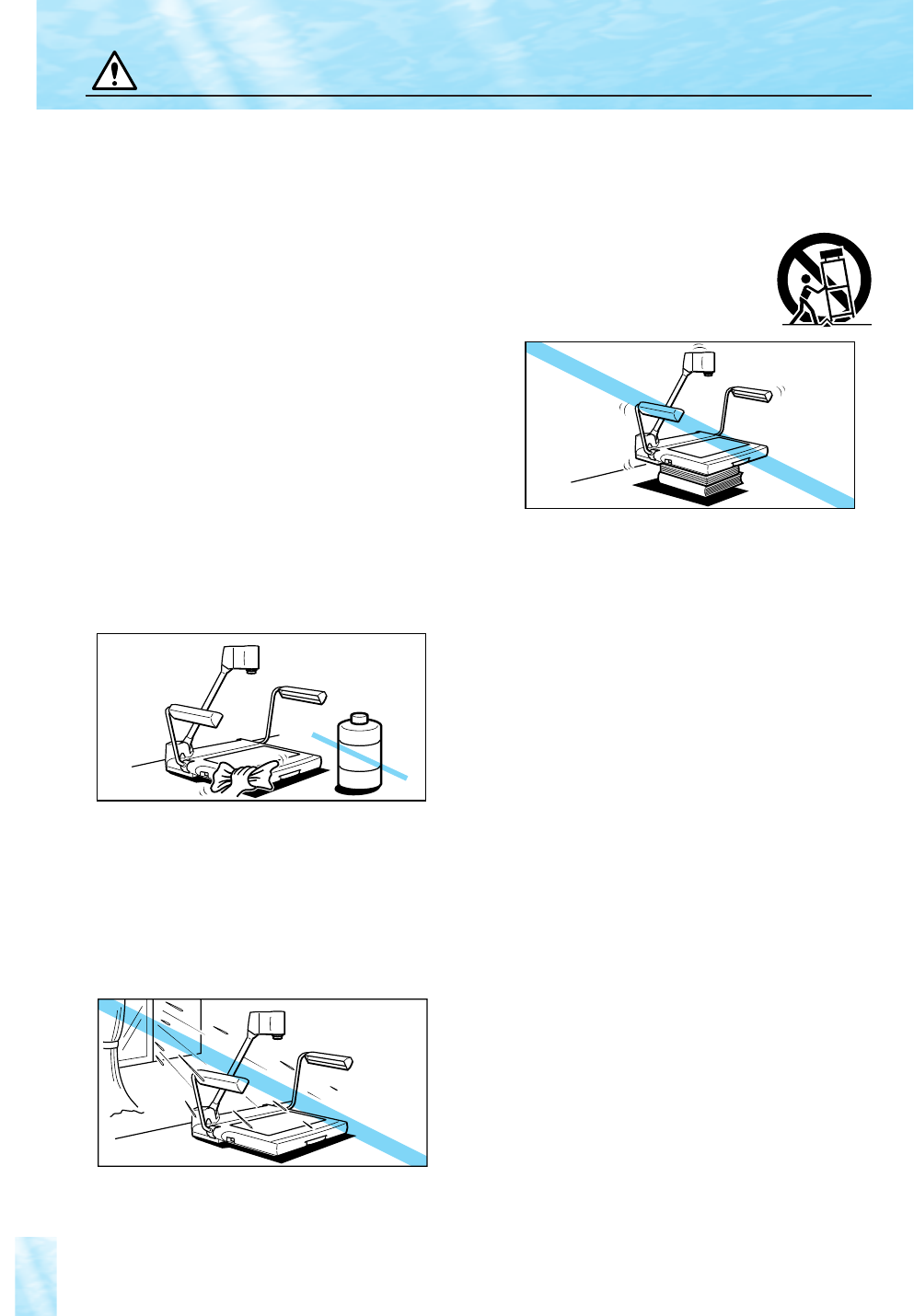
IMPORTANT SAFETY INSTRUCTIONS
3
In these safety instructions the word “product” refers to the Canon Video Visualizer RE-350 and
all its accessories.
1. Read Instructions—All the safety and operating
instructions should be read before the product is
operated.
2. Retain Instructions—The safety and operating
instructions should be retained for future reference.
3. Heed Warnings—All warnings on the product and in
the operating instructions should be adhered to.
4. Follow Instructions—All operating and maintenance
instructions should be followed.
5. Cleaning—Unplug this product from the wall outlet
before cleaning.
Wipe the product with a clean soft cloth. If
necessary, put the cloth in diluted neutral detergent
and wring it out well, before wiping the product.
Finally, clean the product with a clean dry cloth. Do
not use benzene, thinner or other volatile liquids or
pesticides as they may damage the product’s finish.
When using chemically-treated cleaning cloths,
observe their precautions accordingly.
6. Accessories—Do not use non Canon approved
accessories as they may be hazardous. Always use
the specified connection cables and be sure to
connect devices correctly.
7. Water and Moisture—Hazard of electric shock—Do
not use this product near water or in rainy/moist
situations. Do not put a heater near this product.
8. Placing or Moving—Do not place this product on an
unstable cart, stand, tripod, bracket or table. The
product may fall, causing serious injury to a child or
adult and serious damage to the product. A product
and cart combination should be
moved with care. Quick stops,
excessive force, and uneven
surfaces may cause the product
and cart combination to overturn.
9. Power Sources—This product should be operated
only from the type of power source indicated on the
marking label. If you are not sure of the type of
power supply in your home, consult your product
dealer or local power company.
10.Grounding—This product is equipped with a 3-
pronged grounding plug (the plug has a third
grounding pin).
The 3-pronged grounding plug will fit into a
grounding type power outlet. This is a safety feature.
If you are unable to insert the plug into the outlet,
contact your electrician to replace your obsolete
outlet. Do not defeat the safety purpose of the
grounding-type plug.
11.Power-Cord Protection—Power cords should be
routed so that they are not likely to be walked on or
pinched by items placed upon or against them. Pay
particular attention to plugs, and the point from
which the cords exit the product.
12.Outdoor Antenna Grounding—If an outside antenna
is connected to the product, be sure the antenna is
grounded so as to provide some protection against
voltage surges and built-up static charges. Section
810 of the National Electrical Code, ANSI/NFPA No.
70—1984, provides information with respect to
proper grounding of the mast and supporting
structure, grounding of the lead-in wire to an
antenna dischage unit, size of grounding
conductors, location of antenna dischage unit,
connection to grounding electrodes, and
requirements for the gounding electrode. See
figure 1.
B
E
N
Z
E
N


















